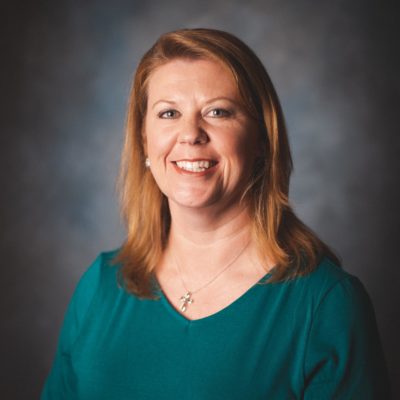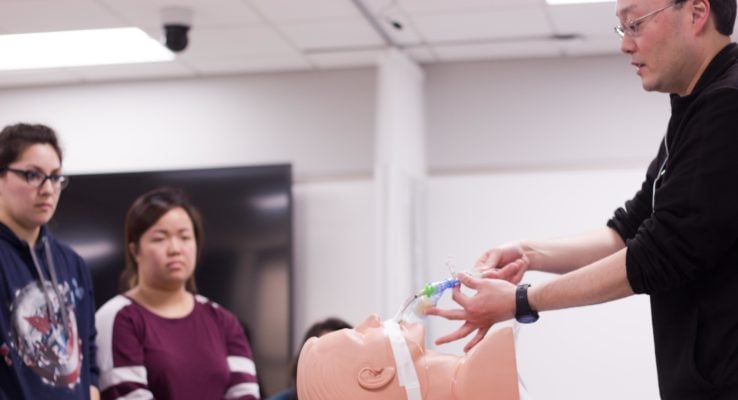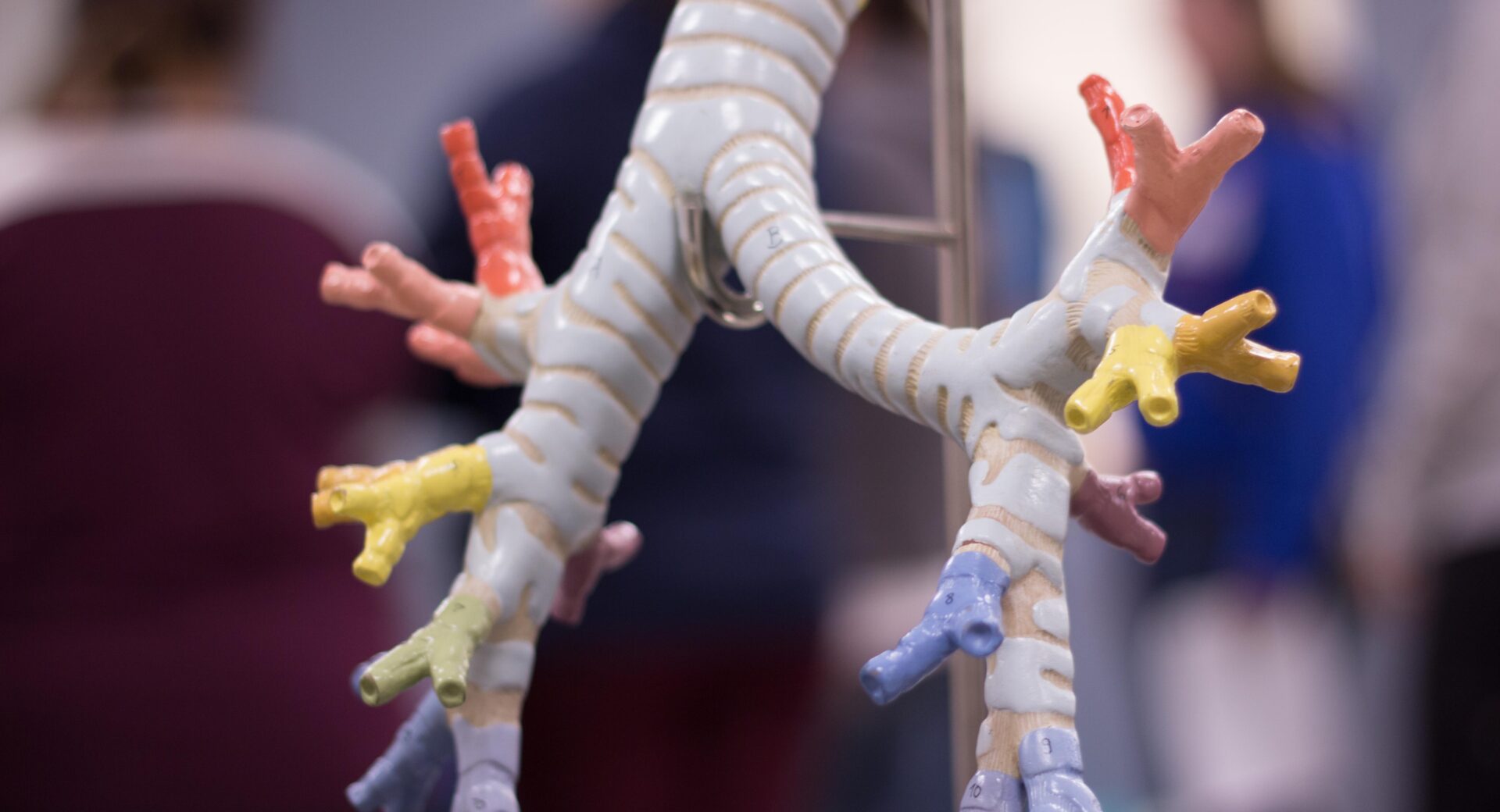Newman University offers more than 40 undergraduate and pre-professional programs with nearly half of those programs focused on mental and physical health.
One of those programs is the respiratory care program, in which, students can work toward an Associate of Science degree. The program is accredited by the Commission on Accreditation for Respiratory Care.
The respiratory care program at Newman focuses on preparing graduates to function as a respiratory therapist under the direction of a physician while assisting in the evaluation, treatment and care to patients of all ages with heart, lung and breathing disorders.
After students complete approximately one year of prerequisites, they can apply to enter the program, which accepts a class size of 20 for each cohort. The professional phase of the program lasts only three semesters.
The location of Newman allows students to connect with local health care facilities, completing their clinical hours in the greater Wichita area. With numerous networking opportunities and a 15:1 student-faculty ratio, the respiratory care students at Newman are given the tools and attention necessary to succeed. When on clinical rotations, that number drops to 2:1 or even 1:1 ratio.
With the nation’s collective concern regarding the novel coronavirus and COVID-19, a respiratory virus that has taken our world by storm, respiratory therapists are in high demand.
Newman graduates will be prepared with the knowledge to work in a variety of health environments, including hospitals, physician offices and specialized care hospitals. Most graduates accept job offers before they officially graduate because the field is in such high demand, even before the widespread COVID-19 concerns.
Students will take courses such as Cardiopulmonary and Renal Physiology, Pediatric Respiratory Care, Neonatal Respiratory Care and more.

Respiratory Care Program Director Margo Wagner said, “We actually encourage our graduates to work in large hospitals for at least a year after graduation. It’s important that they grow as therapists. Treating the sickest of the sick and experiencing unusual clinical situations help them to be self-reliant and confident in the event they choose to work in a smaller facility.”
Typically, one of the program’s application requirements is for prospective students to tour a hospital, however, that is currently being waved due to COVID-19 concerns. Instead, they are asked to review information on “be-an-rt.org” and to place high-focus on their prerequisite science courses.
“Students must also be committed to the notion of lifelong learning,” added Wagner. “Healthcare is rapidly changing, and one’s education does not end upon graduation. Students are encouraged to take additional certification courses before graduation and to earn specialty credentials as they find their passion for specific patient populations.”
Timothy Cho, director of clinical education for respiratory care, said the COVID-19 pandemic has certainly impacted the curriculum going forward, especially with the government restrictions and universities moving to an online learning format for the rest of the spring semester.
“We have lost some clinical rotation time due to increased precautions by our clinical affiliates,” said Cho. “These precautions are absolutely justified as everyone tries to contain the spread of COVID-19. We will continue to utilize the clinical time we still have and augment these experiences.”

He added that the novel coronavirus will change some of the discussions within the class sessions because of changes in processes or information on best practices for treating patients presenting with COVID-19 related lung disease.
Wagner said the pandemic will serve as an educational tool in some ways.
“Healthcare is always changing,” she said. “Best practices and guidelines change based on experiences throughout the country and globally. There is always something new to learn. All of our faculty members strive to impart new and accurate information to our students so they are poised to provide the best care they can.”
Cho said working with community needs is important and they are looking forward to helping local partners.
“We are blessed to have an excellent working relationship with our clinical affiliates. They provide our students with an outstanding clinical experience and give us unwavering support. During this pandemic, we will definitely make our mechanical ventilators, IPPB devices and unused personal protective equipment available.”
Wagner said they are continuously reviewing new information as it is released and incorporating the updates and restrictions into best practices within the program.
For more information about the respiratory care program at Newman, contact Wagner at [email protected]. The Newman University admissions team can also provide a virtual tour to prospective students.

